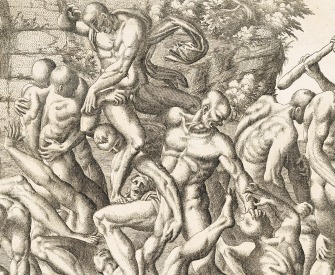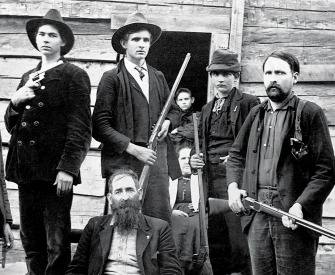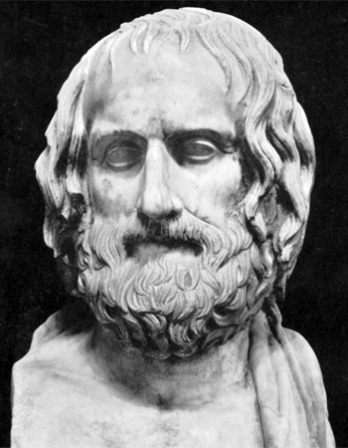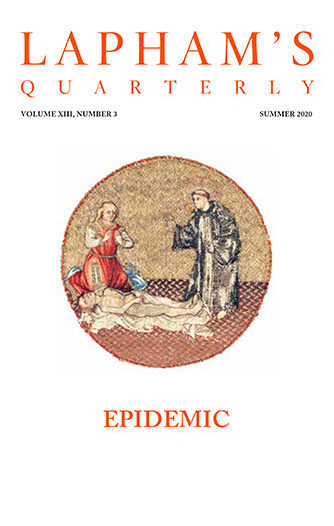So many men, so many opinions.
—Terence, 161 BCSteer Clear of Faction
James Madison argues for the republic.
Among the numerous advantages promised by a well-constructed union, none deserves to be more accurately developed than its tendency to break and control the violence of faction. The friend of popular governments never finds himself so much alarmed for their character and fate as when he contemplates their propensity to this dangerous vice. He will not fail, therefore, to set a due value on any plan which, without violating the principles to which he is attached, provides a proper cure for it.
The instability, injustice, and confusion introduced into the public councils have, in truth, been the mortal diseases under which popular governments have everywhere perished, as they continue to be the favorite and fruitful topics from which the adversaries to liberty derive their most specious declamations. The valuable improvements made by the American constitutions on the popular models, both ancient and modern, cannot certainly be too much admired; but it would be an unwarrantable partiality to contend that they have as effectually obviated the danger on this side as was wished and expected. Complaints are everywhere heard from our most considerate and virtuous citizens, equally the friends of public and private faith and of public and personal liberty, that our governments are too unstable, that the public good is disregarded in the conflicts of rival parties, and that measures are too often decided not according to the rules of justice and the rights of the minor party but by the superior force of an interested and overbearing majority. However anxiously we may wish that these complaints had no foundation, the evidence of known facts will not permit us to deny that they are in some degree true.
No man is allowed to be a judge in his own cause, because his interest would certainly bias his judgment and, not improbably, corrupt his integrity. With equal, nay with greater reason, a body of men are unfit to be both judges and parties at the same time; yet what are many of the most important acts of legislation but so many judicial determinations, not indeed concerning the rights of single persons but concerning the rights of large bodies of citizens? And what are the different classes of legislators but advocates and parties to the causes which they determine? Is a law proposed concerning private debts? It is a question to which the creditors are parties on one side and the debtors on the other. Justice ought to hold the balance between them. Yet the parties are, and must be, themselves the judges; and the most numerous party, or in other words, the most powerful faction, must be expected to prevail. Shall domestic manufactures be encouraged, and in what degree, by restrictions on foreign manufactures? are questions which would be differently decided by the landed and the manufacturing classes, and probably by neither with a sole regard to justice and the public good. The apportionment of taxes on the various descriptions of property is an act which seems to require the most exact impartiality; yet there is perhaps no legislative act in which greater opportunity and temptation are given to a predominant party to trample on the rules of justice. Every shilling with which they overburden the inferior number is a shilling saved to their own pockets.
A pure democracy, by which I mean a society consisting of a small number of citizens who assemble and administer the government in person, can admit of no cure for the mischiefs of faction. A common passion or interest will in almost every case be felt by a majority of the whole; a communication and concert result from the form of government itself; and there is nothing to check the inducements to sacrifice the weaker party or an obnoxious individual. Hence it is that such democracies have ever been spectacles of turbulence and contention, have ever been found incompatible with personal security or the rights of property, and have in general been as short in their lives as they have been violent in their deaths. Theoretic politicians who have patronized this species of government have erroneously supposed that by reducing mankind to a perfect equality in their political rights, they would at the same time be perfectly equalized and assimilated in their possessions, their opinions, and their passions.

Yosemite Valley, Glacier Point Trail, by Albert Bierstadt, c. 1873. Yale University Art Gallery, gift of Mrs. Vincenzo Ardenghi.
A republic, by which I mean a government in which the scheme of representation takes place, opens a different prospect and promises the cure for which we are seeking. Let us examine the points in which it varies from pure democracy, and we shall comprehend both the nature of the cure and the efficacy which it must derive from the union.
The two great points of difference between a democracy and a republic are: first, the delegation of the government in the latter to a small number of citizens elected by the rest; secondly, the greater number of citizens, and greater sphere of country, over which the latter may be extended.
The effect of the first difference is, on the one hand, to refine and enlarge the public views by passing them through the medium of a chosen body of citizens whose wisdom may best discern the true interest of their country and whose patriotism and love of justice will be least likely to sacrifice it to temporary or partial considerations. Under such a regulation, it may well happen that the public voice, pronounced by the representatives of the people, will be more consonant to the public good than if pronounced by the people themselves, convened for the purpose. On the other hand, the effect may be inverted. Men of factious tempers, of local prejudices, or of sinister designs may by intrigue, by corruption, or by other means first obtain the suffrages and then betray the interests of the people. The question resulting is whether small or extensive republics are more favorable to the election of proper guardians of the public weal; and it is clearly decided in favor of the latter by two obvious considerations.
In the first place, it is to be remarked that however small the republic may be, the representatives must be raised to a certain number, in order to guard against the cabals of a few; and that however large it may be, they must be limited to a certain number, in order to guard against the confusion of a multitude. Hence the number of representatives in the two cases not being in proportion to that of the two constituents, and being proportionally greater in the small republic, it follows that if the proportion of fit characters be not less in the large than in the small republic, the former will present a greater option and consequently a greater probability of a fit choice.
In the next place, as each representative will be chosen by a greater number of citizens in the large than in the small republic, it will be more difficult for unworthy candidates to practice with success the vicious arts by which elections are too often carried; and the suffrages of the people, being more free, will be more likely to center in men who possess the most attractive merit and the most diffusive and established characters.
Hence it clearly appears that the same advantage which a republic has over a democracy in controlling the effects of faction is enjoyed by a large over a small republic—is enjoyed by the union over the states composing it. Does the advantage consist in the substitution of representatives whose enlightened views and virtuous sentiments render them superior to local prejudices and schemes of injustice? It will not be denied that the representation of the union will be most likely to possess these requisite endowments. Does it consist in the greater security afforded by a greater variety of parties against the event of any one party being able to outnumber and oppress the rest? In an equal degree does the increased variety of parties comprised within the union increase this security. Does it, in fine, consist in the greater obstacles opposed to the concert and accomplishment of the secret wishes of an unjust and interested majority? Here again the extent of the union gives it the most palpable advantage.
The influence of factious leaders may kindle a flame within their particular states but will be unable to spread a general conflagration through the other states. A religious sect may degenerate into a political faction in a part of the confederacy; but the variety of sects dispersed over the entire face of it must secure the national councils against any danger from that source. A rage for paper money, for an abolition of debts, for an equal division of property, or for any other improper or wicked project will be less apt to pervade the whole body of the union than a particular member of it, in the same proportion as such a malady is more likely to taint a particular county or district than an entire state.

James Madison
From the Federalist Papers. A major source of inspiration for Madison in writing this argument for federalism was an essay by David Hume, “Idea of a Perfect Commonwealth,” which asserted that great size would benefit, not hinder, the development of a stable form of representative government. “Who knows if,” the Scottish philosopher had mused in 1752, “in some future age, an opportunity might be afforded of reducing the theory to practice, either by a dissolution of some old government or by the combination of men to form a new one, in some distant part of the world?”




